Swedish Television (SVT) remains the most common and trustworthy news source about the coronavirus for Swedes. Healthcare professionals are the professional group that Swedes have the most confidence in. These are some of the latest findings of a study being conducted by the non-profit organisation VA (Public & Science) to investigate communication about the coronavirus in Sweden.
In collaboration with researchers from the Karolinska Institute and Södertörn University, VA (Public & Science) is conducting a study of how people are receiving and interpreting information about the coronavirus and the ongoing pandemic. Here are the findings from the 13th wave of the survey, carried out between 17–24 January.
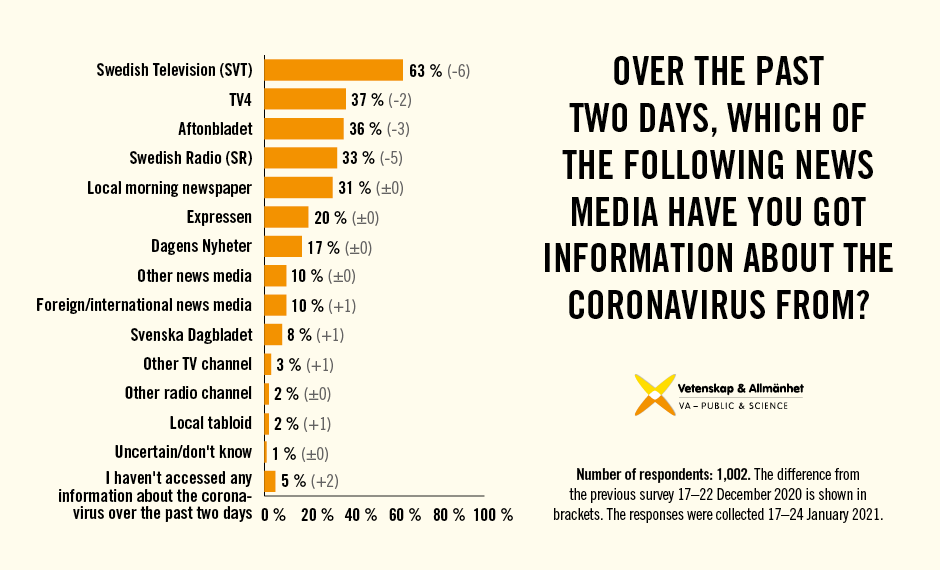
Swedes’ views on the media’s reporting on the coronavirus have not changed significantly between December 2020 and January 2021. Swedish Television (SVT) is still the news channel through which most Swedes (63 percent) access information. However, there are fairly large differences depending on age. Among people aged 65 years or older, 87 percent consume SVT, whereas the corresponding proportion among people aged between 18 and 29 is only 45 percent. Younger people consume other news media to a greater extent or respond that they have not accessed any information about the virus at all, compared with other age groups.
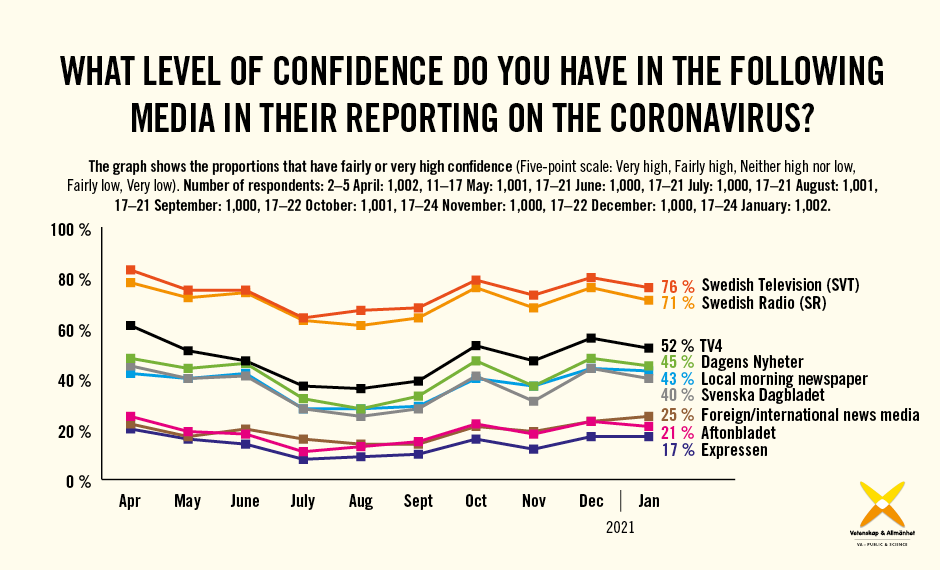
SVT is also the news channel that Swedes still have the greatest confidence in. Three out of four (76 percent) have fairly or very high confidence in SVT’s reporting on the coronavirus. Among supporters of the Sweden Democrats, however, the corresponding proportion is significantly lower (41 percent). Swedes have the least confidence in the reporting of the tabloids Expressen (17 percent) and Aftonbladet (21 percent).
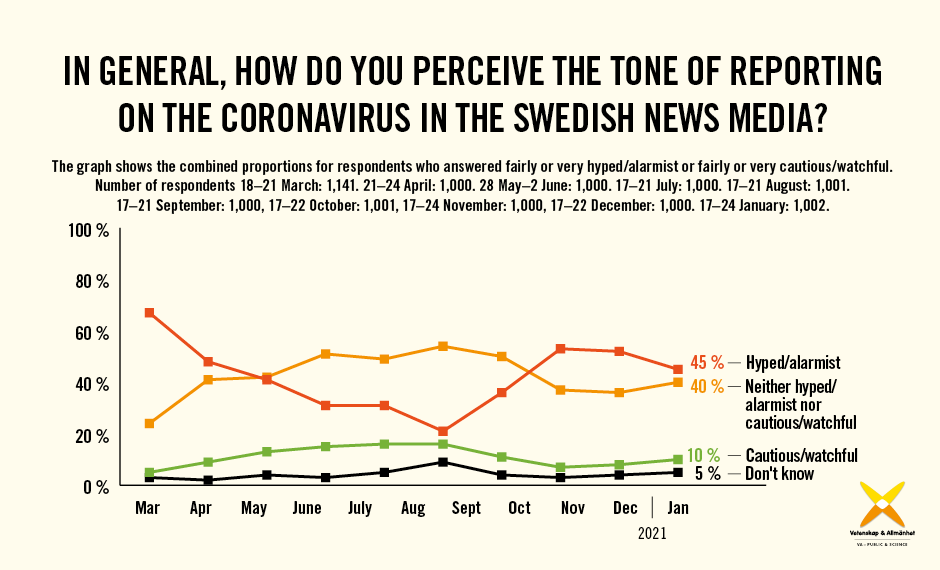
Slightly less than half (45 percent) perceive the tone of the news reporting as hyped/alarmist, whereas one in ten (10 percent) perceive it as watchful/cautious. Older people perceive the tone as alarmist to a greater extent than younger people, and men perceive the tone as cautious to a greater extent than women.
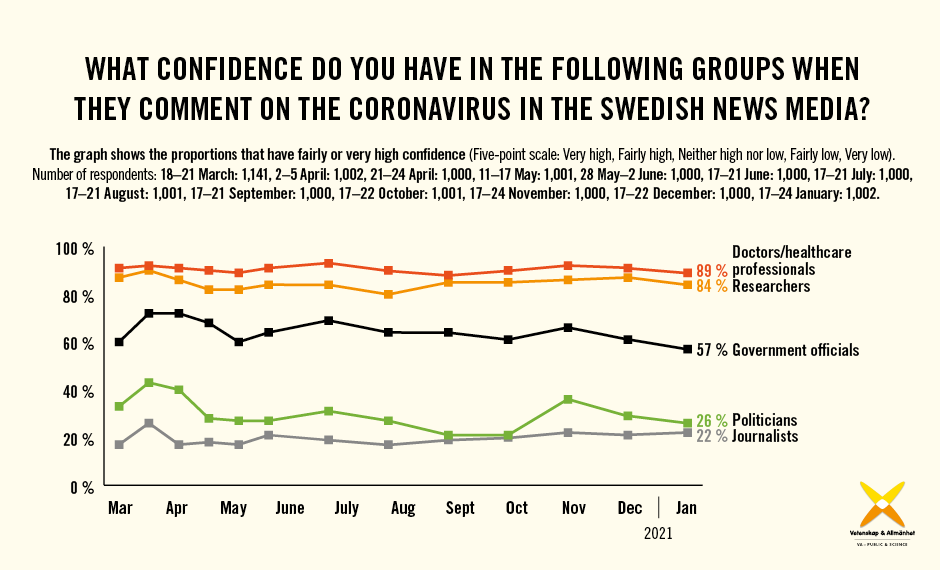
As in previous waves of the survey, Swedes have the greatest confidence in doctors and other healthcare professionals when they comment on the coronavirus in the media. This professional group is also perceived to be most in agreement in their views on how Sweden is handling the pandemic. Neither confidence in, nor perception of the agreement within different professional groups has changed between December 2020 and January 2021.
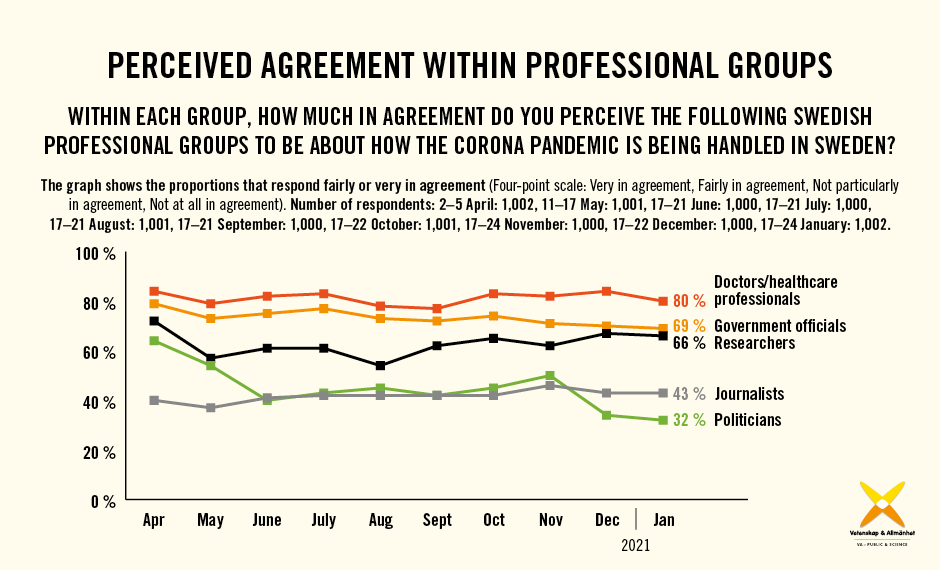
About the survey
The survey was conducted by Kantar Sifo and consisted of 1,002 interviews with a web panel based on random sampling. The interviews were conducted 17–24 January 2021. The results are weighted based on gender, age and region of residence.
In order to monitor the Swedish public’s news consumption, confidence in key professional groups and attitudes towards media reporting over time, we are conducting a number of studies during the course of the pandemic. We also plan to undertake a content analysis of reporting on the coronavirus in the Swedish media in order to map any changes in reporting during different phases, and how this relates to public attitudes during the same time period.
The study is being conducted with the support of the Anne-Marie and Gustaf Anders Foundation for Media Research, Karolinska Institute, LIF – the Swedish Association of the Pharmaceutical Industry, Magn. Bergvall’s Foundation, Södertörn University, the Wenner-Gren Foundations and the Swedish Research Council.
Read more about VA’s study and the results of the first, second, third, fourth, fifth, sixth, seventh, eighth, ninth, tenth, eleventh and twelfth waves of the study.
